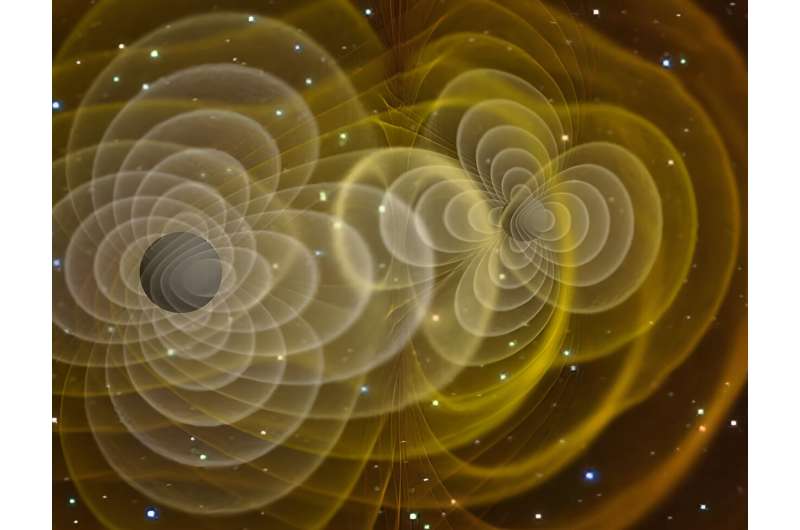This article has been reviewed according to Science X's editorial process and policies. Editors have highlighted the following attributes while ensuring the content's credibility:
fact-checked
trusted source
proofread
Is anything absolute with relativity?

The theory of relativity is at once simple and elegant but also maddeningly nonintuitive. There's no need to get into the full guts and glory of that theory here, but there is one feature of Einstein's work that takes center stage, and would eventually lead him into a complete reshaping of Newton's gravity, altering our very conceptions of the fabric of the universe.
And that singular feature is right there in the name: relative. Einstein discovered that what we once thought immutable was nothing but. But to understand how Einstein rewrote Newton's insights we first have to rewind the clock back a bit and understand Newton's insights.
Once Newton hit upon his idea for a conception of gravity, a force emanating from and connecting to all objects, he needed a universe to make his force universal. When the sun reaches out with its gravitas and instructs all the planets, even mighty Jupiter, where to move next, those planets need to know where they are relative to the sun. When I pluck an apple from the tree and let it fall, the apple needs to know how far away from the Earth it is so that it can have the proper rate of acceleration.
Everything in the universe needs to know where everything else is so that gravity can act with the appropriate amount of force. And so Newton conceived of the cosmos as a vast fixed grid, a series of universal rules and master clocks, and absolute reference frame from which all other measures could be taken. (This is not meant to be taken literally, I should mention. There is no giant clock floating out there in the void of space, ticking by with absolute time, nor are there literally grids of marked rulers crisscrossing the cosmos. This is all a mathematical framework that provides the mechanisms for computing gravitational forces, but the need for that framework is paramount in Newton's work.)
And so in Newton's view of gravity, every gravitational interaction must be computed in regard to that universal, fixed, absolute frame of reference. The entities of our universe must know where they are relative to this fixed frame so that gravity can be the correct strength at the proper times and the proper places.
But James Clerk Maxwell's work on electromagnetism flew in the face of this universal frame of reference (although Maxwell did not realize it at the time). Maxwell's own genius mathematics said that the speed of light was the speed of light, always and forever. No matter how fast you were moving, or in what direction you were moving, whether light was approaching you or receding, it didn't matter. Light moved at lightspeed.
If there was some universal frame of reference, some master clock and absolute ruler, as Newton suggested, then the speed of light should only be the speed that it is relative to that absolute frame, because that absolute frame is the benchmark against which to measure all motion. And so the existence of that absolute frame should allow you to move astride a beam of light and see it fixed and frozen in place.
Who should win in this titanic battle of unification giants, Maxwell or Newton? Does the universe have a fixed frame of reference for us to judge all motion against, or are some things, like the speed of light, immutable and constant, uncaring of our point of view?
Einstein picked Maxwell, and Einstein was right. There is no universal frame of reference, no master clock or absolute ruler. There is no way to judge motion except for the relative viewpoints of every observer. In other words, this is the relativity in the theory of relativity: all motion is relative. If Einstein rode past me on his bicycle, I could only say that he is moving from my perspective. From his perspective, he could rightly claim that he was fixed still and that I was the one in motion.
In discarding the notions of absolute time and space, Einstein did gain something for his effort. Not all things are relative; there are some constants in the universe. Namely, the laws of physics. All observers great and all, slow and fast, pointed and directionless, all observers agree on the commonality of the laws of physics. Case in point, Maxwell's equations. They say that the speed of light is a constant. The end. And so it is: every observer in the universe, regardless of their position or speed or acceleration, will always view the same speed of light.
Provided by Universe Today




















